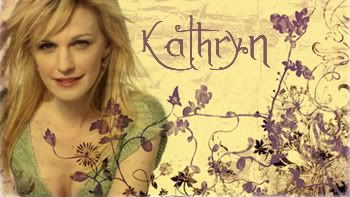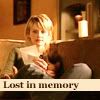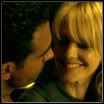Athame
Loyal to Look Again
Hiding Duck
Do you like this pumpkin!?
Posts: 740
|
Post by Athame on Aug 30, 2006 1:17:37 GMT -5
This article does not mention Kathryn, but it is still interesting: HereThe line up is long and the day is oppressively hot outside the Mustard Seed. Quiet feet shuffle in. They take their seats, hold their meal tickets and wait patiently for a kindly volunteer to bring them their meal.
Everyone has a tale to tell at a homeless shelter, most not suitable for print. In some ways the sadness in this room can be absolutely suffocating.
Yet, in other ways, the joy in this room compares to none other. There is a safety here, an understanding and proof that the gift of humanity is in us all. Joy or sadness, peace or torment, I see God’s hand at work feeding the poor and I see God waiting patiently to turn each and every life in that room into something amazing. Days at The SEED are raw and beautiful.
Last Sunday, July 9th, guests of the Mustard Seed received a gift. Movie trucks pulled up to the homeless shelter carrying cameras, lights, and…movie stars. To add to the excitement, the production company also hired and paid forty-four guests of The SEED to be extras for eight hours in a scene in the movie, Resurrecting the Champ.
The movie is about a young newspaper reporter Erik Kernan, played by Josh Hartnett, who is on the hunt for the story that will put him on the map and take him out of the shadow cast by the storied career of his sportscaster father.
Erik encounters a homeless man named Champ, played by Samuel L. Jackson and quickly learns he is boxing great Bob Satterfield, whom everyone thought was deceased. As the two become closer, Erik eagerly soaks up the details of Champ's illustrious past, hoping he's found the story that will further his career.
The filming was a chance for guests of The SEED to laugh, work and step out of their desperation for a little while and experience a day in Hollywood. The role wasn’t that much of a stretch for most guests. They sat, ate lunch and had mock conversations, serving as a backdrop for Jackson and Hartnett.
Rick Shortt, a Seed guest says, “I think it will help The SEED out a lot – to really let people know where street people are coming from, because there is a lot of people out on the street that have no where else to go. They are looking for help. The SEED has helped me out a lot over the last couple of years. They got me back on my feet. They helped me get back on the right track – get my life back. Awareness is the big thing. There are a lot people who don’t know anything about people on the street. They look down on them as though they’re bums, but they’re really not bums, they have dreams – they just got into addiction or mental health issues came up. They don’t know who to turn to or where to go for help and The SEED helps point them the right way if they want the help.”
“Sony” Kamps, another guest of The SEED, says he hopes the exposure the Mustard Seed receives from the filming will “show people there is somewhere to go, somewhere safe, if they end up on the street.” |
|
|
|
Post by friendly2004 on Aug 31, 2006 0:16:46 GMT -5
if this has already been posted, i'm so sorry...but for others (like me) who still don't know what did kathryn play in the movie... an article in april : www.calgarysun.com/cgi-bin/publish.cgi?p=132733&x=articles&s=showbizCold Case’s Kathryn Morris and Hollywood veteran Alan Alda will join Josh Hartnett and Samuel L. Jackson in Resurrecting The Champ. The production begins filming in the city June 19 for 36 days, director Rod Lurie tells the Sun. “Calgary is everything we expected it to be. I’ve been overwhelmed by the city and the co-operation of the film commission.” Lurie and other members of the production team scouted the city last month. Written by Lurie, Champ stars Hartnett as a down-on-his-luck reporter who meets a homeless man he mistakenly believes is a famous former fighter. Jackson plays the boxer. Morris, who has been attached to the film for two years, will portray Hartnett’s wife. She previously acted in The Contender, Lurie’s acclaimed 2000 political thriller. so i guess, a lot of screentime for kathryn!!! woohoo!!! can't wait to watch the movie!!! |
|
Athame
Loyal to Look Again
Hiding Duck
Do you like this pumpkin!?
Posts: 740
|
Post by Athame on Sept 13, 2006 0:24:29 GMT -5
It's only a small amount of information, but it is at least involving Kathryn.
Josh Hartnett first came to audiences’ attention as Michael "Fitz” Fitzgerald in the television series "Cracker.” He made his feature film debut in 1998, co-starring with Jamie Lee Curtis in "Halloween: H20” and later that year starred in Robert Rodriguez’s "The Faculty” alongside Elijah Wood and Salma Hayek. The following year he starred opposite Kirsten Dunst in the critically acclaimed black comedy, "The Virgin Suicides,” Sofia Coppola’s directorial debut.
In 2001, Hartnett hit his stride starring in three features, portraying the antagonist Hugo in "O,” a modern-day version of Othello; Capt. Danny Walker in "Pearl Harbor” opposite Ben Affleck; and SSgt. Matt Eversmann in Ridley Scott’s "Black Hawk Down.” Since then, Hartnett has gone on to star in two films directed by Paul McGuigan, "Wicker Park” and the recent "Lucky Number Slevin,” as well as Rodriguez’s bold and visually inventive "Sin City.”
In "The Black Dahlia,” Hartnett plays L.A.P.D. homicide Detective Bucky Bleichert, the deeply flawed protagonist who narrates most of the film sporting a fedora with a cigarette dangling from his mouth and ends up being seduced by both female leads. Bleichert’s world begins to spin out of control the minute he’s assigned to the case and his partner, Lee Blanchard (Aaron Eckhart) becomes obsessed with solving the Dahlia murder. De Palma felt that the actor could easily reflect Bucky’s inherent good intentions found in the script. "Even in this corrupt world, there’s such a decency about Bucky,” he observes. "Like the old noir movies in which Bogart played, he has this moral weight.” Long involved with "The Black Dahlia’s” production, Hartnett was attracted to the challenging role because it wasn’t a "morality tale after all. The characters have certain flaws that they’ll follow to the end, and no one deviates from those.”
Screenwriter Josh Friedman’s rat-a-tat period dialogue wouldn’t be the only challenge for Harnett. The physicality of the part would require the actor to train for four hours a day for seven months to play seasoned boxer Bucky (known in the ring as Mr. Ice), who happened to have a light-heavyweight record of 36-0-0. He would also find himself chain smoking Camels while in character. "I saw myself age,” Hartnett says. "My organs were barking at me. I was not on speaking terms with my lungs for about a year.”
Josh Hartnett recently sat down with Movies Online to discuss what it was like to star in "The Black Dahlia.” Here’s what he had to tell us about his experience and the challenges of making the film:
Question: Why do you think men want to save the damsel in distress?
Josh Hartnett: Who is the damsel in distress in this movie?
Q: Both of them, on some level.
JH: If Madeleine Linscott is a damsel in distress, than I am as well. [Laughs] The inclination of noir films to pose that question and then turn it on its head is, I think, part of what was intriguing about the films, back in the 40's and 50's. It was so opposed to the way people were viewing the nuclear family back then. I also think that the post-war era, where people came home and moved to the suburbs and had their families living in seclusion from these grittier details of life, made them lust for it a little bit, and it turned Hollywood on its head, in a way. Noir was the opposite of what Hollywood had grown to expect and market. People were lusting for that darker side of life when they were living in such seeming isolation from that darkness.
Q: Why do you think guys try to save the girl?
JH: I guess, in this particular instance, I don't understand who is the damsel in distress. I'm ultimately the one who's saved, in the end, by Kay. I kill the other one, so I don't think I save her very well. [Laughs] Aaron [Eckhart] has a fascination with saving [women]. His character is very specifically trying to save all the women because of the relationship that he missed out on with his sister. I think that that is a similar characterization to Bud White in ' L.A. Confidential,' which is something that I think Ellroy likes to revisit. I think that he finds it noble. But, that nobility is obviously what sets him off in his tragic trajectory.
Q: And, your character wants to save Kay as well.
JH: When somebody harms someone that you care about, you want to harm them, I suppose. That's an initial reaction. He wants to protect her, but that's a naive understanding of the situation. Before this story takes place, he doesn't really understand the complexities of it. That's why he's the naive person, at the beginning of this script. But, I don't think that it's an inclination that's across the board, and I don't think it's the central focus of the piece.
Q: What do you think the difference between lust and love is?
JH: I don't even know. Define love. I think that my definition of love has changed over the years, as I've grown a little bit older. Lust is nothing like any of those definitions, though. Lust is a simpler feeling. It's an immediate reaction. It's like a sense. Lust is just a feeling.
Q: Dwight and Kay have a complicated relationship, in that they're bonded and also circling each other from a distance. Can you talk about how you developed that? While working with Scarlett, did you jump in together as collaborators and bond, or did you start circling each other from a distance?
JH: Because the characters are so well defined in the book and because the scenario is so clear, it's almost like all we had to do as actors was develop a shorthand with each other. Same with all the actors’ relationships with Brian [De Palma]. We just developed an understanding with each other so that we could move through the piece because I think that Ellroy has done most of the work for us -- all the backstory. We know how we're feeling about each of the other characters at any given moment because it's in the book. So, as actors, we didn't have to manipulate the situation the way that, sometimes, you do. On this last film that I just finished -- a movie called 'Resurrecting the Champ' -- Kathryn Morris and myself had to develop an entire backstory, just on our own. We had to sit down and get into it, and all that. On this film, aside from the fact that Kay and Bucky have no backstory, we had less of that. We just had to act.
Q: Can you talk about meeting Scarlett? Was it an instant attraction for you, or something that developed over working together?
JH: I had an instant attraction to everybody on this film. I think that Scarlett, Hilary and Aaron are three of the most talented people I've ever worked with and working with talented people improves your work. For me, as far as being on set, I couldn't ask for anything more. I loved working with these guys. Brian was the surrogate father, and we all got to run around and play games.
Q: You were involved early on with this picture. How did you get involved with this?
JH: Brian came onto the film about 2 ½ or 3 years after I initially got involved. It was a different director at the time they hired me. It was the same producers, Art Linson and Moshe Diamant. But, I was hired to play Bucky when I was much too young to play Bucky. I was 23. Maybe I was just about to turn 23. So, I was really young. But, I recognized how great the material was and wanted to stick with it, so when the other director dropped out and Brian came on, there was a gap there of two years, where nothing was happening. When Brian came on, he hired me, just right off the bat. 'Cause I was still attached, he signed on with me already attached, which was great. And then, I went and talked to him and he didn't seem to have any interest in talking about the character or anything. We just sat down and had a cup of coffee and looked at each other and said, "This is going to be fun," and told a couple jokes, and that was it. That's how our relationship is. [Laughs] Our relationship has stayed around that depth, and I love him for that. He knows what he wants, he casts well, and once he's cast the roles, unless there's a specific role that needs manipulation . . . The character of the Dahlia -- of Betty Short -- wasn't even in the script, really. That was all improv between him and Mia. When he wants to work with actors, that's the way he does it, but this script was so tight, he didn't have to improv with us and he just left us to our own devices. It was fun. We just had a good time together.
Q: Some of this dialogue is a specific kind of dialogue. Were some of those things put in for comic relief because so much of the material is so serious?
JH: Yeah. Brian added elements of comedy, like the shot that becomes first person. The meeting of the Linscotts was very funny, I thought. Brian has a devil may care attitude about filmmaking, which I love. He wants to make it entertaining. He wants to make it pulpy, in a way. He wants to make it operatic and fun. I appreciate that. There are certain films that you need to take with the utmost seriousness, if you're telling a true story, through and through. This film is fictionalized. It's based on Ellroy's book, which also has some of that humor. We added little humorous elements, all the time. We never wanted unintentional laughs. The hat thing was just a goof that Brian left in.
Q: Did you get to keep any of the wardrobe?
JH: No, Jenny Beaven doesn't let anybody take her wardrobe.
Q: You and Scarlett are in your 20's and your director is 66. Can you talk a little bit about the differences in generation?
JH: Working with directors, because I feel this is such a director's medium, there are certain points of negotiation, but for the most part, it's going to be their movie, so you either get in line with them, or you end up disappointed. I have seen, I think, pretty much everything Brian's done, and I felt like his work made him the perfect person to adapt this book for the screen, and that's all it's about. It doesn't matter the age, really. Maybe because he's a little bit older, he had a better understanding of this era than a younger director might. But, I just thought his filmic sensibility was right in line with the novel's sensibility. There is certain dark, wry wit about the whole thing, and I thought his operatic filmic sense played right into the era and the grandness of the whole situation.
Q: Can you talk about the K.D. Lang scene? What are your feelings about how it works and what its inspirations are?
JH: I thought that that scene's insertion into the film was kind of last minute. I know that Ellroy had his feelings about it. But, I thought it was just De Palma-esque. It was him, adding his flavor. And, K.D. was game. She was really up for it.
Q: Ellroy sees the character of Bucky as himself, in a lot of ways. Was that communicated between you and him?
JH: He didn't tell me that until Venice, a week and a half ago. For me, I guess that's a compliment, if he sees himself in what I did. But, it was kind of obvious that he had written from a personal perspective because it's a first-person narrative and because he has said, many times, that this book was written in this way to exorcize the demons that were haunting him, due to his mother's death. The Dahlia and his mother's murder were inextricably linked for him, and so I assume that there was some sort of autobiographical tendency to the character. But, my job was just to take the work that was on the page 'cause if I tried to play James in this film, it would have been a wild film, man.
Q: This is one of the biggest Hollywood scandals. Was there a sense of creepiness around any of this on the set?
JH: We were in Bulgaria, so we didn't have a lot of connection to the Los Angeles of the era. There's a creepiness to any true story, in a way. Maybe creepiness isn't the right word, but a responsibility that you feel, in a way. On this particular film, it's a fictionalized account, so as Ellroy would say, we're just trying to honor Betty Short and her death, but it's not trying to figure anything out. It's not trying to decipher it for anybody. It's a story. We can't catch the killer, unless this guy that recently came forward, who says that he did it, is really the killer, but there have been 1,000 such people.
Q: Can you talk about the fight scene? How much did you and Aaron get into the boxing?
JH: I spent way too much time, really, boxing for this. I didn't need to, and I knew that I wasn't going to need to. I knew it was only going to be one scene in the film. But, Ellroy makes a direct correlation between the way that Bucky acts as a fighter and the way that he acts in his life. He's Mr. Ice in both, and the way that he takes apart an opponent is very similar to the way he takes apart the case. So, for me, when I got into the ring, I felt I was starting to really understand the character, so I spent seven months boxing, five days a week, four hours a day, like they were training me to actually have a fight. And then, I would run for an hour, every day. It was intense. My trainers were really into it. They were killing me. The first day of training, or maybe the first few days, they put me in the ring to try and spar, to just show me that it wasn't going to be a cake walk. I think I made it less than a round before I was just passing out. You start to hyper-ventilate and you don't know how to keep your cool and you don't know how to start to pick apart your opponent. You don't know how to defend yourself. By the end of it, I was going seven rounds with 30-second intervals for time off, which is equivalent in a normal bout of going a full 10-round fight, so I was tip-top. It all helped me understand the character because it was all about being able to take my time and pick my opponent apart and act decisively at the right moments, but not until then. Bucky's a boxer, not a fighter, and that just gave me direct insight into the character.
Q: Did you get any boxing advice from Hilary?
JH: [Laughs] No. Apparently, somebody said somewhere that she challenged me to a fight [laughs], but I wouldn't take her up on it. She looked pretty good in 'Million Dollar Baby.'
Q: As an actor, can you identify with the idea of Bucky's obsession? And, is that something you have to be more wary of?
JH: Yeah. There's a certain obsessive tendency in actors, as I think there is with anybody who has a job that has a finite amount of time. You have to complete it, and you have to complete it in a certain amount of time, so you ultimately think you're going to be relieved of this obsession at a certain point, and that justifies you really pouring yourself into it, heart and soul, much to the chagrin of anyone you know and love.
Q: Are you still living in Minnesota, and is it still keeping you in your cocooned security, being so far away from Hollywood?
JH: Well, I've never cocooned myself. I've always just tried to stay out of what I considered a trap, that I think takes out a lot of young actors. You live in a place where people focus on your work all the time and it defines you and, if things start to not go as well, you start to doubt yourself as a human being. I just saw that it was not going to be easy for me to separate my work from my person, if I didn't take a few steps away from Hollywood, so I never really lived here. Most of my friends aren't actors, or in the business. Most of them are artists of different types -- photographers, writers, painters, musicians, and some of them are filmmakers and actors. I live in New York and Minneapolis, and always have. I just wanted to make sure that I wasn't going to get sucked into some sort of rut, where I was going to become either a parody of myself, or get stuck doing the same type of roles all the time. So, I took a bunch of steps back, in order to reassess my situation and find different types of roles.
Q: So much is said about how sports are a metaphor for life. Did that occur to you when you were boxing and running? Did you learn about yourself, as a result of that process? Was it a metaphor for life, for you?
JH: I was so focused on the character, I haven't even thought about that yet. I suppose it taught me that I'm capable of more than I thought I might have been. I guess I'd never heard that the way you act in sports is a metaphor for the way you act in life, except for [the fact that] through the character, I thought it had a direct correlation. I wasn't thinking about me, personally. I did push through. I did persevere, and I did pretty well. I'll take that as a compliment to myself. I had a terrific time doing it. Thank you. [Laughs]
Q: So, are you shooting anything right now?
JH: Yeah, I'm doing a movie called "30 Days of Night.” I'm shooting in Auckland, New Zealand. David Slade is directing it. It's a Columbia movie.
Q: Who else is in it with you?
JH: Danny Houston, Ben Foster, this girl Melissa George, some other folks. It's a good one. And, I just finished this movie called "Resurrecting the Champ” with Sam Jackson and Alan Alda, and a bunch of other people.
Q: ??
JH: We didn't talk about the character that much until after the filming was completed, but you learn about life through guys like that, just by watching them and trying to figure out how they do it.
Q: Do you normally smoke that much?
JH: No. No, I don't. I was smoking two packs of Camel Straights a day, plus when I got off work, I would smoke another pack of Camel Lights. It actually made me quit smoking for a long time.
Q: How did you get through all your training while you were smoking that much?
JH: That was the hard part. I didn't smoke through all the training at all, and then, when I got to set and had to start smoking again, that just tore me apart, but I had to do it. You can see it in the movie. I look sallow. I look sick through a lot of the film because I was working 12 hours a day, going to the gym for as many hours as I can, and I actually started eating meat while I was there because the Bulgarian doctor didn't know what else to do with me. He said, "You eat meat?" I said, "No." He said, "Eat meat."
Q: Because you're a vegetarian, right?
JH: Yeah. I literally couldn't walk anymore because I was so anemic.
Q: Was it hard to give up smoking after filming?
JH: Oh, yeah. But, it was necessary. I could see myself getting older. I could feel myself getting older. It was immediate because it was so much smoke.
Q: Any secret to quitting?
JH: It hasn't stuck completely so, no, I can't give any advice.
Q: What was it like to kiss both Hilary Swank and Scarlett Johansson?
JH: They're both very good kissers. It was part of a day's work. Tough day at the office.
Q: Was there some physical contact during that fight scene?
JH: Oh, we ended up accidentally hitting each other a couple times. Aaron got me, at that point, twice and that was a pain in the ass. I wanted to get him back. But, we survived it.
Josh Hartnett will be seen next in "Resurrecting the Champ,” directed by Rod Lurie, opposite Samuel Jackson. He is currently filming the horror film "30 Days of Night” directed by David Slade. After that comes Bruce Beresford’s "The Prince of Cool,” a new take on the life of legendary trumpeter Chet Baker.
The Black Dahlia” opens in theaters on September 15th. I invite you to read my review of the film and my interviews with director Brian De Palma, actress Scarlett Johansson, novelist James Ellroy, and screenwriter Josh Friedman.
|
|
Athame
Loyal to Look Again
Hiding Duck
Do you like this pumpkin!?
Posts: 740
|
Post by Athame on Nov 19, 2006 5:17:43 GMT -5
Looks like it's set to be released in January! ;D
Moehringer's "Champ" KOs actors
By Bill Husted
Denver Post Staff Columnist
Article Last Updated:11/18/2006 09:51:54 PM MST
Pulitzer winner J.R. Moehringer's talk Monday night at the Post-News Pen & Podium Series is sold out. But Moehringer has plenty other reasons to be pleased. The paperback edition of the Denver author's memoir, "The Tender Bar," has logged some serious time on the NY Times best-seller list. And the movie of his 1997 LA Times Sunday Magazine story, "Resurrecting the Champ," is set to premiere at Sundance in January.
"The screening at Sundance is the pinnacle," says director Rod Lurie. "All the actors in this movie are totally blown away. It's more than meeting our expectations."
"Champ" stars Samuel L. Jackson, Alan Alda, Teri Hatcher, Kathryn Morris - and Josh Hartnett as a Moehringer-esque newspaper reporter.
"Champ" is set in Denver, but it was shot mostly in Calgary. Still, the crew stopped in Denver last July to film some exteriors, like Hartnett visiting Broncos training camp, gabbing with Jake Plummer. Also, a pivotal scene was filmed at Elway's restaurant, featuring John Elway and Hartnett.
Lurie says there's no way Plummer or Elway will wind up on the cutting room floor. "They're great in the film. John's very funny. He's doing as good as the Broncos are right now - and that's pretty good."
|
|
|
|
Post by longislanditalian2 on Dec 3, 2006 15:53:44 GMT -5
According to several sources this movis is set to premire at the sundance film Festival in January!!
The 2007 Sundance Film Festival has announced the independent film and word cinema competitions. The following is the full press release:
Sundance Institute announced today the line-up of 64 films selected for the Independent Film and World Cinema Competitions for the 2007 Sundance Film Festival. The premier showcase for the best new work by American and international independent filmmakers, the Sundance Film Festival’s competitive categories provide audiences with opportunities to discover the most innovative new dramatic and documentary films from today’s emerging independent filmmakers. In addition to the Competition categories, the Festival presents films in five out-of-competition sections, to be announced tomorrow. The 2007 Sundance Film Festival runs January 18-28, 2007, in Park City , Sundance, Salt Lake City , and Ogden , Utah . The complete list of films is available at Sundance.org.
Another article I had found while browsing around on several sites is a tidbit of what the movie is supposed to be about...
Resurrecting of the Champ"/ USA, Director Rod Lurie; Screenwriters: Allison Burnett, Michael Bortman, Chris Gerolmo, Rod Lurie A down on his luck sports reporter has his life and career upturned when he lands the story of his career: A former heavyweight boxing superstar, previously thought to be dead, is living his final years on the streets. Finally, he can earn the respect of his wife and editor---but the dark secret he finds may be too much for him to bear. World Premiere.
|
|





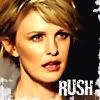



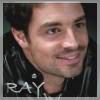

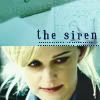
 .
.